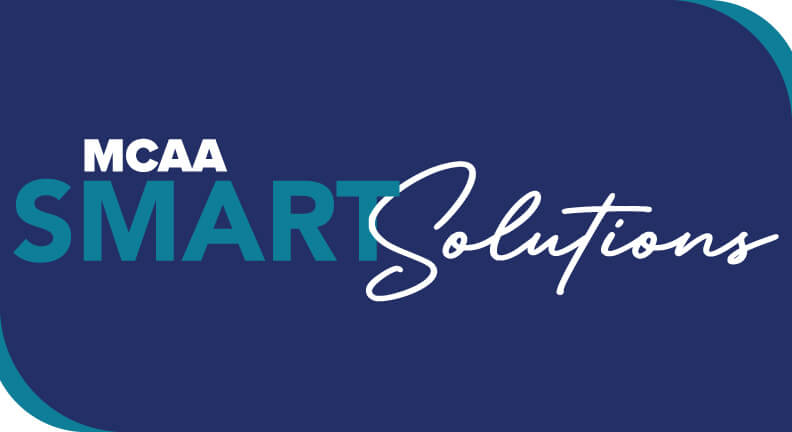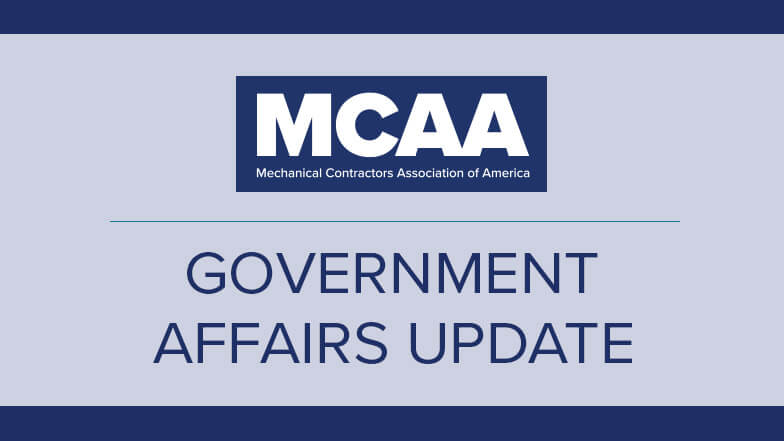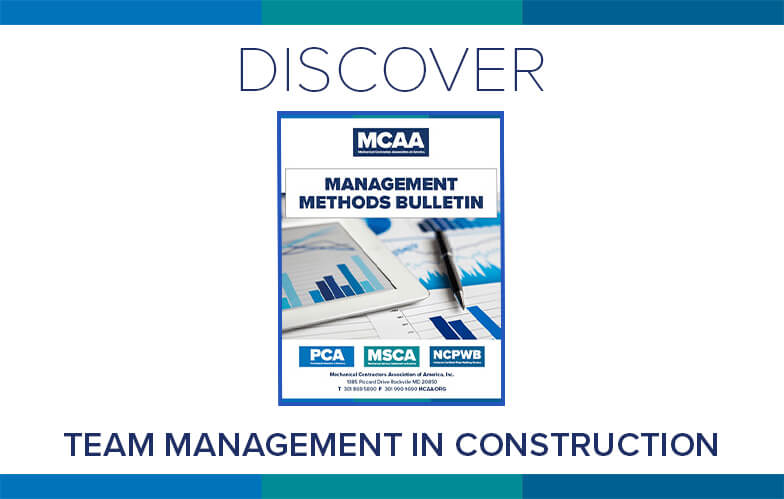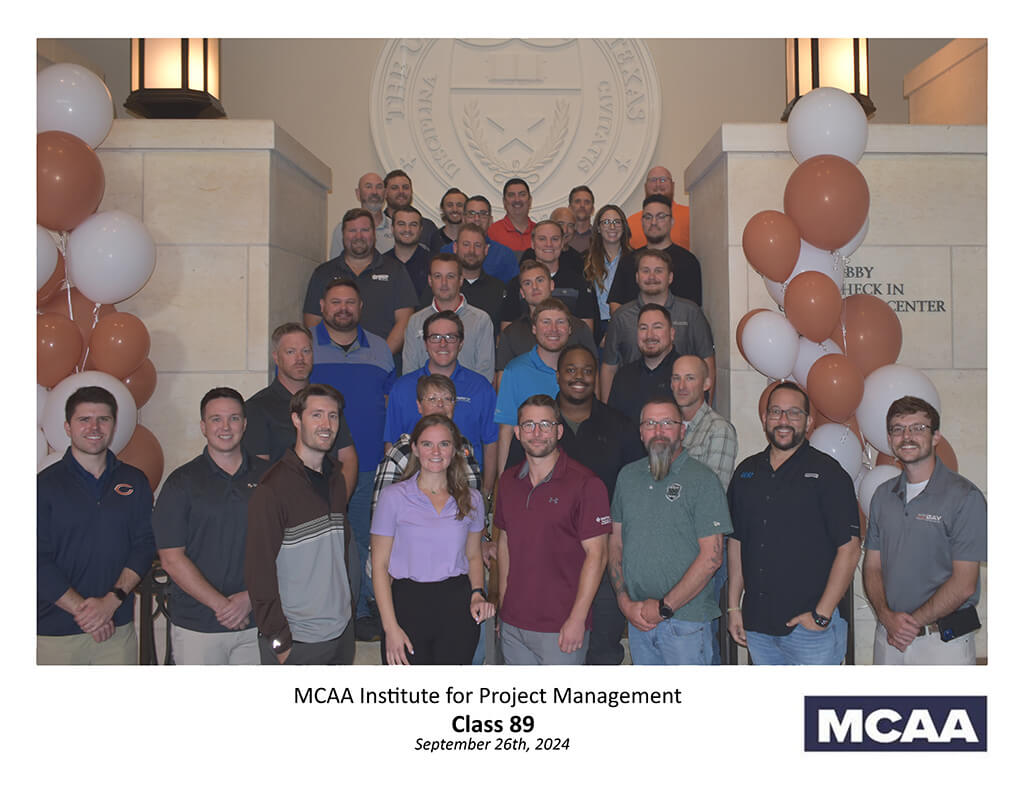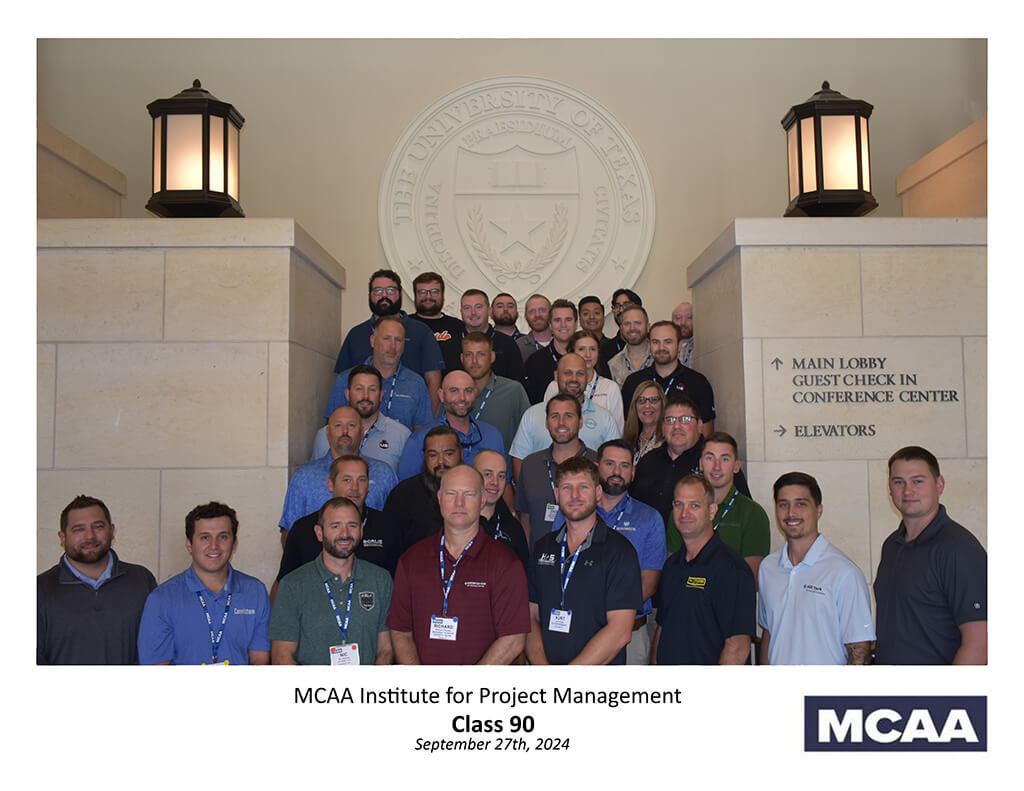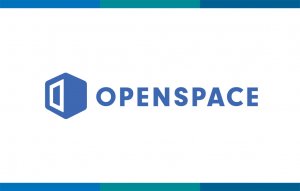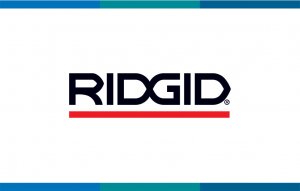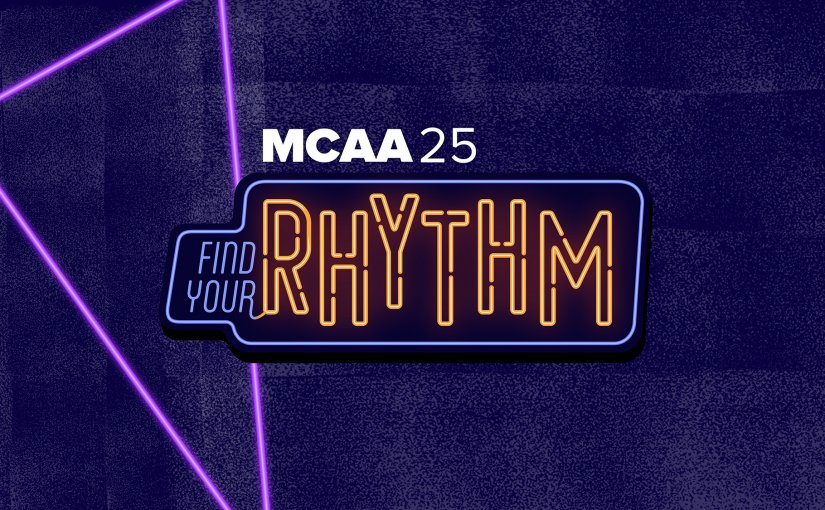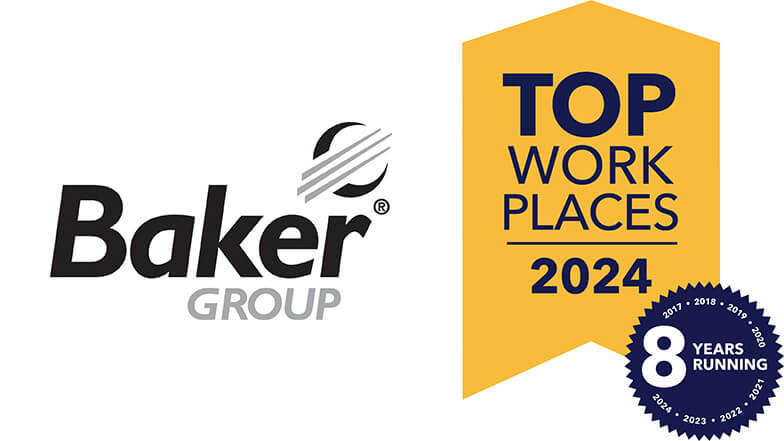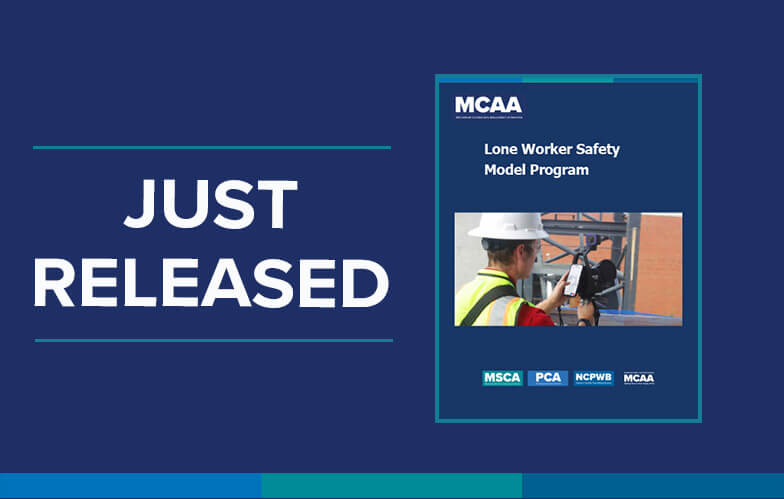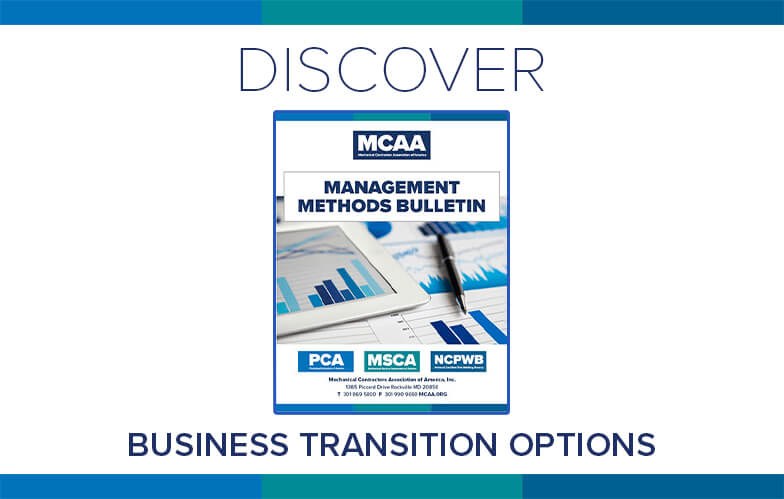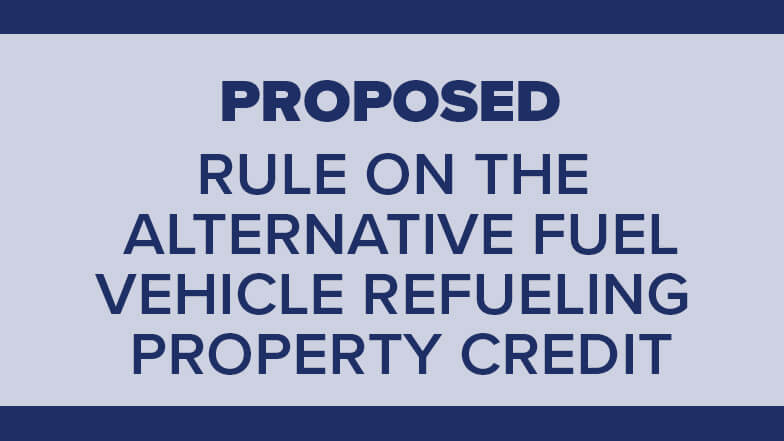As part of its ongoing commitment to protecting your livelihood and setting the stage for a bright future, MCAA has secured the services of Longbow Public Policy Group to advise our MCAA Government Affairs Committee (GAC). GAC Chair, Jim Gaffney will be passing along information relative to our industry on a regular basis.
On Monday, September 23, 2024 MCAA Lobbying Firm, Longbow Public Policy Group provided the following information:
MCAA Issues and Interests
Registered Apprenticeship
House Advances USA Workforce Investment Act
On September 11th, House Ways and Means passed out of Committee the “USA Workforce Investment Act” (H.R. 9461), that would allow a credit against tax for charitable donations to nonprofit organizations providing workforce training. The MCAA and our union partners opposed the bill because it was drafted to not allow a tax credit for contributions to registered apprenticeship plans created through a collectively bargained agreement. MCAA is also concerned that the bill lacks any meaningful quality standards for workforce training programs that may receive this credit.
Despite our efforts, the bill advanced out of Committee on a party-line vote of 22-15. The MCAA was able to help persuade Rep. Brian Fitzpatrick (R-PA), Rep. Nicole Malliotakis (R-NY), and Rep. Mike Carey (R-OH) to abstain from voting on the bill, and to get all Democrats on the Committee to oppose the bill. While we are disappointed that the bill advanced out of Committee, we believe our outreach demonstrated that this bill has problems since three Republicans left the markup to avoid voting on it and made their concerns about it clear to the Chairman. The government relations team is confident we can turn back the effort to move the bill before the November elections.
DOL National Apprenticeship Modernization Rule
In addition to our work on the “USA Workforce Investment Act,” over the last two weeks and throughout the August recess, the MCAA policy team continued our outreach to the Department of Labor regarding changes we requested to the Department’s rulemaking on “National Apprenticeship System Enhancements” in joint comments that we filed with the UA in March 2024. The final rule has been pending review by the White House Office of Information and Regulatory Affairs (OIRA) since June 14, 2024. We have been stressing the concerns highlighted in the joint comments the MCAA and the UA submitted on this rulemaking. We are also urging retention of some provisions of the proposed rule that we like. Given the long delay in the review at OIRA, we are confident some changes are being made and will continue pressing our concerns given that it is unclear whether some or all our concerns will be addressed.
Project Labor Agreements and Davis-Bacon Prevailing Wage
Over the last two weeks, the MCAA continued its outreach from the August Congressional recess to oppose pending Congressional Review Act (CRA) resolutions to rescind MCAA-supported rulemakings on project labor agreements from the Federal Acquisition Regulatory Council and on Davis-Bacon prevailing wage from the Department of Labor. As lawmakers race to fund the federal government ahead of the September 30th funding deadline, punt several must-pass bills like the National Defense Authorization Act to the lame duck session of Congress in November and December, and work to depart D.C. ahead of October to campaign, we are growing confident that we may be able to prevent these CRA resolutions from being considered. We are, however, continuing to closely monitor litigation against these rulemakings.
Pension Reform
IRS Extends Deadlines for Retirement Plans to Update Plan Documents
As we continue to engage Congress regarding the prospects for pension reform in the coming debate next Congress over reauthorizing provisions of the 2017 Tax Cuts and Jobs Act, we wanted to share that on September 12th, the Internal Revenue Service (IRS) announced that it is extending deadlines for collectively bargained retirement plans and other retirement plans to update their documents to align with the revisions mandated by the SECURE Act; the SECURE 2.0 Act; the Coronavirus Aid, Relief, and Economic Security (CARES) Act; and the Taxpayer Certainty and Disaster Tax Relief Act. Collectively bargained plans now have until December 31, 2028, to amend their documents to be in compliance with these requirements.
Decarbonization
There were several developments on the decarbonization front over the last two weeks:
IRS Releases Proposed Rule on Alternative Fuel Vehicle Refueling Property Credit
On September 19th, the Internal Revenue Service (IRS) released a proposed rule regarding the “Section 30C Alternative Fuel Vehicle Refueling Property Credit.” Comments on the proposed rule are due by November 18, 2024.
To qualify for the Section 30C credit detailed in the proposed rule, refueling property must be used to store or dispense “clean-burning fuel” or to recharge electric motor vehicles placed in service after December 31, 2022, and before January 1, 2033, within a low-income community or within a non-urban Census tract. “Clean-burning fuels” eligible for the Section 30C tax credit are: (1) electricity, (2) any fuel for which at least 85 percent of the volume consists of one or more of the following: ethanol, natural gas, compressed natural gas, liquified natural gas, liquefied petroleum gas, or hydrogen; (3) any mixture that consists of two or more of the following: biodiesel, diesel fuel, or kerosene and at least 20 percent of the volume of which consists of biodiesel determined without regard to any kerosene in such mixture; and (4) any transportation fuel as defined under section 45Z(d)(5) of the Internal Revenue Code.
The credit amount for property not subject to depreciation is 30% of the cost of the qualified property placed in service during the tax year. The credit amount for depreciable property is 6% of the cost of the qualified property placed in service during the tax year but may be increased to 30% of the cost of the qualified property if the prevailing wage and apprenticeship requirements are satisfied. The proposed rule provides guidance on how to calculate the credit, including what constitutes an “item” of qualified alternative fuel vehicle refueling property, the additional costs considered in determining the cost of the item, and how to treat dual-use property.
An eligible census tract that qualifies for the credit is any population census tract that is a low-income community or any population census tract that is not an urban area. The proposed rule provides guidance for determining whether a population census tract is an eligible census tract. In conjunction with the release of the proposed rule, the IRS also issued Notice 2024-64 that modifies Notice 2024-20 published on February 12, 2024 to provide guidance on eligible census tracts and referring taxpayers to Appendix A and Appendix B containing eligible census tracts designated by a unique identifier called an 11-digit census tract GEOID. Notice 2024-64 modifies Notice 2024-20 by updating the mapping tools that taxpayers can use to identify the 11-digit census tract GEOID for a location where a property is placed in service. Notice 2024-64 also extends the applicability period of Notice 2024-20, as amended. More information is available on the IRS’ Alternative Fuel Vehicle Refueling Property Credit Website.
Phasedown of HFCs
As we continue to engage with federal agencies on the hydrofluorocarbons (HFCs) phasedown pursuant to the American Innovation and Manufacturing (AIM) Act of 2020, we learned that on September 13th, the White House Office of Information and Regulatory Affairs completed its review of the Environmental Protection Agency’s (EPA) final rule entitled, “Phasedown of Hydrofluorocarbons: Management of Certain Hydrofluorocarbons and Substitutes Under Subsection (h) of the American Innovation and Manufacturing Act of 2020.” EPA’s proposed rulemaking covers practices, processes, or activities regarding the servicing, repair, disposal, or installation of equipment, for the purposes of maximizing the reclamation and minimizing the release of certain HFCs from equipment and ensuring the safety of technicians and consumers. Among other provisions, EPA proposed emissions reduction requirements for certain equipment containing HFCs and their substitutes as well as requirements for the reclaiming of HFCs.
EPA Issues Enforcement Alert Regarding Compliance Issues Related to Importation of HFCs
Relatedly, on September 9th, the EPA issued an Enforcement Alert providing information on common compliance issues the agency has observed related to the importation of bulk hydrofluorocarbons (HFCs). So far in fiscal year 2024, the EPA has completed nine civil settlements to resolve claims of unlawful imports of HFCs. The most recent settlements were against five companies—Clean Venture, Inc.; HVAC Services; Liferafts Incorporated of Puerto Rico; Little Leaf Farms, LLC; and Parker Engineering and Mechanical, Inc. Each of these companies imported HFCs without allowances in violation of the AIM Act. The enforcement actions are authorized by the AIM Act of 2020.
Other Interesting Things Since Our Last Report
Thursday, September 19th
- Ten GOP governors from Louisiana, New Hampshire, Tennessee, Virginia, Arkansas, Indiana, South Dakota, Oklahoma, Georgia, and Wyoming announced the formation of the Governors Coalition for Energy Choice, a coalition aimed at opposing Biden Administration renewable energy mandates and reducing regulations around energy production. The organization’s mission statement says the coalition aims to “ensure continued energy choice, minimize permitting and other regulatory barriers, limit expensive energy mandates, focus on affordability and reliability of energy infrastructure, and coordinate to positively manage energy resources and the environment.”
- CNBC reported that Port of New York/New Jersey executives have begun preparations for a complete work stoppage by the International Longshoreman’s Association (ILA). A strike by the ILA when its contract expires at the end of this month would shut down five of the 10 busiest ports in North America, and a total of 36 ports along the East and Gulf Coasts of the U.S. Between 43% and 49% of all U.S. imports and billions of dollars in trade monthly are at stake as the October 1st deadline for a new contract approaches. The Biden Administration already said it will not invoke the Taft-Hartley Act to force ILA members to go back to work and is urging the parties to return to the bargaining table.
Wednesday, September 18th
- House Speaker Mike Johnson (R-LA) outlined his economic agenda for the first 100 days under a second Trump administration during a speech at the America First Policy Institute. Among other priorities, Johnson said Republicans would: (1) extend the tax cuts included in the 2017 Tax Cuts and Jobs Act; (2) repeal “wasteful” tax credits included in the Inflation Reduction Act (IRA), as well as “anti-energy” regulations; (3) use the tax code to deter illegal immigration and eliminate immigration loopholes; and (4) support a robust Child Tax Credit and the “dignity of work.” Speaker Johnson’s remarks come as the IRA spurs clean energy investments in Republican-led congressional districts across the country, prompting many Republican lawmakers to voice support for keeping at least some of the IRA’s tax credits. House Speaker Johnson (R-LA) reflected this when he said, “you’ve got to use a scalpel and not a sledgehammer because there’s a few provisions in there that have helped overall.”
- The Biden Administration is working to award all the grants from the President’s Inflation Reduction Act (IRA) before a new president takes office amid Trump’s threats to cancel the law’s unspent funds. The Biden Administration has awarded $90 billion in grants to climate, clean energy, and other projects so far under the IRA, which amounts to 70% of the law’s roughly $120 billion in total funding and over 80% of what the law made available before 2025.
Tuesday, September 17th
- Rep. Eric Burlison (R-MO) introduced H. J. Res. 203, a Congressional Review Act resolution to nullify the National Labor Relations Board’s (NLRB) final rule on “Representation-Case Procedures: Election Bars; Proof of Majority Support in the Construction Industry Collective-Bargaining Relationships.” The NLRB’s final rule restored three NLRB policies that facilitate union organizing, including the NLRB’s policy on voluntary recognition in the construction industry, the blocking charge policy, and the policy on construction industry bargaining relationships.
- The Labor Department (DOL) issued a blog post announcing a new online resource on Substance Use Disorder (SUD) in the Workplace, which clarifies that people with SUD may be protected under the Americans with Disabilities Act and the Rehabilitation Act and entitled to accommodations to help them continue recovery or stay productive while in treatment. The new resource contain a toolkit to help employers develop recovery-ready workplace policies, a guide for employers on supporting workers with SUD, and a companion guide for workers.
Monday, September 16th
- The Energy Department (DOE) announced $90 million in funding for competitive awards to help states, cities, tribal nations, and their partners implement updated energy codes for residential and commercial buildings. Funded by the President’s Bipartisan Infrastructure Law, these awards will support 25 new projects across the country to help ensure buildings meet the latest standards for energy efficiency. The funding is part of the $225 million Resilient and Efficient Codes Implementation (RECI) initiative that supports workforce development and other code-implementation solutions in high-impact states with substantial construction activity. The projects will also expand stakeholder engagement opportunities through tailored rural and regional collaboratives. Selected projects include: (1) $2.2 million for the National Association of State Energy Officials to establish a new and replicable approach to evaluate the impact of building energy codes on resilience and pilot the strategy in Arizona and Florida; (2) $1.6 million to the New Buildings Institute, South-Central Partnership for Energy Efficiency as a Resource and Austin Energy to support the implementation of efficient and resilient energy codes in Texas and Oklahoma, including access to training on the latest codes; and (3) $1.6 million to the Rhode Island Office of Energy Resources and the Rhode Island Builders Association to provide energy code training and educational resources to building inspectors, design professionals, builders, and construction trades in Rhode Island to support implementation of the latest energy codes. A full list of projects supported under the RECI initiative is available here.
- The Centers for Medicare & Medicaid Services (CMS) released “Medicare Prescription Payment Plan” resources related to the Inflation Reduction Act’s new payment option to help anyone with a Medicare drug plan or Medicare health plan manage out-of-pocket costs for drugs covered under their plan by spreading payments across the calendar year. These resources are for Part D Medicare sponsors to share with enrollees to help them determine if the payment option might help them and include: (1) a webpage that explains the Medicare Prescription Payment Plan and provides a response tool to help Part D enrollees determine if the payment option might help them; (2) a fact sheet in English and Spanish (among other languages); and (3) a takeaway card in English and Spanish (among other languages). Additionally, CMS is developing a cost preview inside of the Medicare Plan Finder that is based on a consumer’s specific drug list, a set of consumer-selected Medicare Advantage or Part D plans, and consumer-selected pharmacies, including both retail locations and mail order options. This cost preview will be made available in time for open enrollment in the fall.
- CNBC reported that four years after the start of the COVID-19 pandemic, there are 900,000 fewer students enrolled in college than before the pandemic. Experts say this is due to growing worries over rising tuition costs and large student loan balances that are causing more high schoolers to make alternative plans. Roughly half (49%) believe a high school degree, trade program, two-year degree or other type of enrichment program is the highest level of education needed for their anticipated career path. Additionally, 56% say they believe that real world and on-the-job experience is more beneficial than obtaining a higher education degree.
- The Kaiser Family Foundation suggested that the outcome of the November presidential election could slow down the Biden Administration’s plans to replace lead water pipes nationwide, particularly if the Biden Environmental Protection Agency’s recent lead pipe replacement rule does not take effect by October and enforcement of the less-stringent Trump Administration rule takes its place.
Friday, September 13th
- Senate Health, Education, Labor, and Pensions (HELP) Ranking Member Bill Cassidy (R-LA) sent a letter to the Department of Labor (DOL) requesting responses from the Labor Department’s Office of Workers’ Compensation Programs (OWCP) following a May 2024 report from the DOL Office of Inspector General (OIG) that found that American energy workers are being prevented from and experiencing delays in receiving medical care under the Energy Employees Occupational Illness Compensation Program Act (EEOICPA). Per the OIG report, OWCP “has routinely overlooked or missed errors in benefits claims, including incomplete employment verification, insufficient evidence to link the claimant’s illness to their employment, or failure to follow the documented procedures for making a claim for benefits. Ranking Member Cassidy (R-LA) in his letter argued that “[t]hese errors can prevent qualified workers and their families from receiving EEOICPA health benefits, threatening the lives of these workers who need medical care.”
Thursday, September 12th
- The Transportation Department’s (DOT) Federal Highway Administration (FHWA) announced a Request for Information (RFI) from stakeholders about electric vehicle (EV) charging technologies and infrastructure needs for medium- and heavy-duty vehicles. The RFI seeks input in four areas to support medium- and heavy-duty electric vehicles: (1) unique EV charger and station needs; (2) vehicle charging patterns; (3) charging technology and standardization; and (4) workforce, supply chain, and manufacturing to support charging of medium- and heavy-duty battery EVs in DOT vehicle classes four through eight, which include delivery vans, school buses, semi-tractor trucks, fire trucks, dump trucks, and tour buses.
- The Koch-affiliated Libre Initiative Action endorsed: (1) Rep. John James (R-MI) in his re-election bid in Michigan’s 10th Congressional District; and (2) Sen. George Logan (R-CT), who is challenging Rep. Jahana Hayes (D-CT) in Connecticut’s 5th Congressional District.
Tuesday, September 10th
- U.S. Department of Agriculture (USDA) Secretary Tom Vilsack said that he’d like to see guidance from the USDA on the 45Z tax credit (which would reward production of lower emitting transportation fuels) issued before the end of December, saying that, “It’s on the top of my list.” Vilsack also reiterated that the USDA is working on a rule to be used as part of the U.S. Treasury’s final guidance to the 45Z tax credit taking effect in 2025.
- House Oversight and Accountability Ranking Member Jamie Raskin (D-MD), Senate Budget Chair Sheldon Whitehouse (D-RI), and Senate Finance Chair Ron Wyden (D-OR) sent new letters to Chevron, ExxonMobil, Continental Resources, Chesapeake Energy, Occidental Petroleum, Venture Global LNG, Cheniere Energy, EQT Corporation, and the American Petroleum Institute demanding compliance with the Committees’ original requests for information regarding quid pro quo solicitations made by Trump. This comes after Trump reportedly offered to sign Executive Orders and take other official actions to benefit oil and gas companies in exchange for $1 billion in contributions to his presidential campaign.
Monday, September 9th
- CNBC reported that there is a new urgency to build small modular nuclear reactors as demand for clean electricity is rising from artificial intelligence, manufacturing and electric vehicles while utilities across the country are retiring coal plants as part of the energy transition—raising worries about a looming electricity supply gap.
Friday, September 6th
- The Labor Department published a blog post related to the Bureau of Labor Statistics’ annual employment projections data, which predicted that over the next 10 years employment in the construction and extraction sectors will increase by 5.6%.
Around the Country
Northeast
- On Friday, September 20th, Constellation Energy issued a press release announcing a Microsoft and Constellation Energy power purchase deal that would enable the restart of a nuclear reactor at Pennsylvania’s Three Mile Island nuclear plant. The plan is to bring Three Mile Island’s dormant 835 megawatt Unit 1 that closed in 2019 back online by 2028 so it can be used to power a Microsoft data center. Microsoft has committed to a 20-year supply deal for power from this reactor unit. Constellation plans to invest $1.6 billion to revive the reactor. The deal is, however, contingent on approval by the U.S. Nuclear Regulatory Commission authorizing the restarting of the reactor.
- On September 18th, Democratic Newark City Councilmember LaMonica McIver defeated Republican small businessman Carmen Bucco in a special election to fill the remainder of the late Rep. Donald Payne, Jr.’s (D-NJ) term in New Jersey’s 10th Congressional District. McIver and Bucco will face a rematch in November for a full term.
West
- On September 9th, the Interior Department (DOI) announced that it is finalizing the following clean energy projects in Nevada: (1) the Greenlink West Transmission Project to create a system of new transmission lines and facilities crossing federal, state, Tribal and private lands from North Las Vegas to Reno through Clark, Esmeralda, Lyon, Mineral, Nye, Storey and Washoe Counties, and provide up to 4,000 megawatts of clean energy—enough to power at least 4.8 million homes; and (2) the Libra Solar Project, which includes a solar facility battery energy storage system expected to generate and store up to 700 megawatts of energy on approximately 5,778 acres of public lands in Mineral County. Additionally, DOI announced that it has opened a 90-day comment period for Draft Resource Management Plan Amendments and Environmental Impact Statements for the following proposed projects in Nevada: (1) the Greenlink North Transmission Project, which would designate a 210-mile-long by 3,500-foot-wide utility corridor and unlock up to 4,000 megawatts of clean energy; and (2) the Bonanza Solar Project, a proposed 300-megawatt solar facility that would include battery storage and a 5.4-mile gen-tie line on approximately 5,133-acres of public lands in Clark and Nye Counties, near Las Vegas.
Northwest
- On September 19th, Oregon Gov. Tina Kotek (D) announced plans to use a new land use law to propose Hillsboro, Oregon, a suburb of Portland, for a semiconductor facility. Specifically, Kotek is proposing to expand Hillsboro’s city boundaries to incorporate half a square mile of new land to provide space for a new semiconductor research center.
Midwest
- On September 19th, the Environmental Protection Agency (EPA) announced partnerships with the cities of Monmouth, Elgin, and Maywood, Illinois to help identify drinking water lead pipes and accelerate their replacement through the Bipartisan Infrastructure Law’s Get the Lead Out Initiative, to achieve 100% replacement of lead service lines.
- On September 12th, the Environmental Protection Agency (EPA) announced a collaboration with the city of Fostoria, Ohio to help identify lead in pipes used for drinking water, develop lead service line replacement plans, increase community outreach and education efforts, and apply for funding through the Get the Lead Out Initiative, funded entirely by the Bipartisan Infrastructure Law, to move the nation toward 100% lead service line replacement.
- On September 9th, a new poll found that incumbent GOP Sen. Deb Fischer (NE) holds a one-point lead (39%-38%) against Independent Dan Osborn, a union steamfitter, with 23% of voters undecided. The poll also found incumbent GOP Rep. Don Bacon (NE) trailing his Democratic opponent Tony Vargas by six points (46%-40%) in the race for Nebraska’s 2nd Congressional District.
Southeast
- On September 16th, the Labor Department (DOL) announced $164,540 in proposed penalties against South Marine Systems of Westlake, which is based in Pascagoula, Mississippi. Federal safety inspectors found a welding crew working aboard a commercial iron ore vessel moored at the Port of Ashtabula in Ohio narrowly avoided disaster after a large fire erupted as they welded off paint in a cargo hold, an incident their employer could have avoided by following DOL safety regulations. Specifically, the Occupational Safety and Health Administration (OSHA) found the employer did not designate a competent person able to identify hazards and failed to have a marine chemist present to test for hazardous atmospheres before welding started, among other things. OSHA also determined South Marine Systems did not stop work when small fires began to assess hazardous conditions and risks. The United States Coast Guard (USCG) and National Transportation Safety Board have opened separate investigations of the incident.
- On September 12th, the Labor Department (DOL) announced that it has recovered $44,816 in back wages for 12 employees of Walker White Inc., a subcontractor performing plumbing and HVAC work under a contract with the U.S. Army Corps of Engineers at Fort Jackson in South Carolina, after a DOL Wage and Hour Division investigation determined the company wrongly classified apprentices as laborers and did not pay the required prevailing wage rates, including the basic hourly rate and fringe benefits, in violation of the Davis-Bacon Act. Investigators also found the employer failed to pay overtime rates of time-and-one-half an employee’s basic rate of pay for hours over 40 in a workweek, a violation of the Contract Work Hours and Safety Standards Act.
Southwest
- The Interior Department (DOI) announced $16.73 million in Bipartisan Infrastructure Law funding to assist five Tribal Nations in cleaning up orphaned oil and gas wells on their homelands. This funding may be utilized to plug, remediate or reclaim orphaned wells on Tribal lands, restore soil and habitat in areas degraded due to orphaned wells, decommission or remove associated infrastructure, identify and characterize additional undocumented wells on Tribal land, and set up well-plugging capacity where not already established. This effort advances the Biden Administration’s Justice40 Initiative that sets a goal to deliver 40% of the overall benefits of certain federal investments to historically disadvantaged communities that have been marginalized by underinvestment and overburdened by pollution. The funding is going to the Chickasaw Nation in Oklahoma, Chippewa Cree Tribe of the Rocky Boy Reservation in Montana, The Comanche Reservation in Oklahoma, The Jicarilla Apache Nation in New Mexico, and the Osage Nation in Oklahoma.




